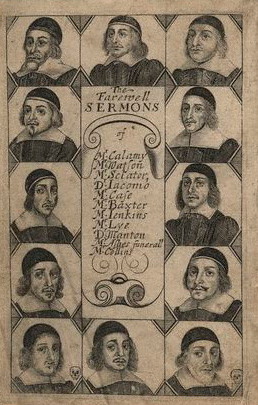Philip Furneaux (1726-1783) was an English dissenting minister whose work against religious persecution was known in the American colonies and likely influenced views on the importance of freedom of conscience.
Furneaux had aided in the so-called “sheriffs’ case” — a case in English courts in the period between 1754 to 1767 — in which nonconformists successfully resisted a tax on religious dissenters.
One of the greatest oracles of English law at the time was William Blackstone, author of Commentaries on the Laws of England. Furneaux joined Joseph Priestly in rejecting Blackstone’s idea that English dissenters could be punished for criticizing the Anglican faith and barred from public office.
Furneaux opposed government prosecuting religious dissenters
In a series of published letters to Blackstone, Furneaux took the position that even though the Anglican Church was the established church in England, secular authorities had no business prosecuting dissenters. He noted that justifying civil prosecution of dissenters in England would equally justify Roman Catholic, Muslim, or pagan rulers from exacting similar penalties against nonconforming Protestants or other Christians within their own realms.
Furneaux believed that compulsion was at odds with the teachings of Jesus and that persuasion was a more appropriate tool than punishment. Much as James Madison and Thomas Jefferson would later argue, Furneaux believed that religious beliefs were a matter between individuals and God and did not fall under the province of state authority.
In his second letter to Blackstone, Furneaux wrote that “every man’s private persuasion or belief, must be founded upon evidence proposed to his own mind; and as things appear to HIMSELF, not to others; to his own understanding, not to that of any other man. Conviction is always produced by the light which is struck into the mind; and never by compulsion, or the force of human authority” (Furneaux 1771, 36, f’s changed to s’s where appropriate here and in subsequent quotations).
Furneaux believed religious speech should be protected
He took a similar view of religious speech, although he did believe that dissenters, like others, could be prosecuted if their beliefs were translated into violent actions. In his third letter, Furneaux wrote that “human laws have nothing to do with mere principles, but only with those overt acts arising from them, which are contrary to the peace and good order of society” (1761, 59).
Furneaux was especially concerned about prosecutions that were based on the alleged bad, or dangerous, tendencies (a restrictive test later employed in American courts in cases like Gitlow v. New York (1925) to suppress freedom of speech), rather than on overt illegal behavior. In his third letter, he thus observed that “Punishing a man for the tendency of his principles is punishing him before he is guilty, for fear he should be guilty” (1761, 63).
Furneaux opposed blasphemy laws, test oaths for public officials
In similar fashion, Furneaux opposed blasphemy laws, which put governmental officials in charge of what was orthodox rather than leaving the punishment of any such offenses to God’s judgment. As indicated above, he also opposed test oaths for public offices, seeing this as an “odious mark of distinction” (p. 188), less likely to promote respect for the government than to alienate individuals who would otherwise give loyal service to God and country.
In his seventh letter, Furneaux observed that “religious and civil liberty have a reciprocal influence in producing and supporting one another” (p. 202). Significantly, the First Amendment to the U.S. Constitution arguably affirms this connection by including both.
John R. Vile is a political science professor and dean of the Honors College at Middle Tennessee State University.

